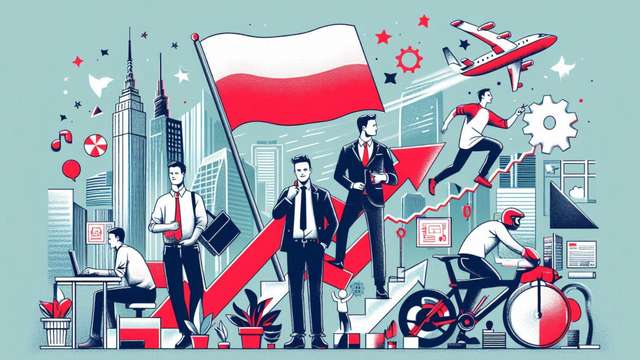
Global supply chains are under threat again. This is more or less the meaning of the headlines of most industry portals. As in the case of previous articles announcing the catastrophe, the coronavirus is also in the lead role this time.
Table of Contents
It would seem that everything that is worst when it comes to the pandemic turmoil is behind us. The economies should get off their knees and the situation in the markets is back to normal. Well, nothing could be more wrong.
THE SAME PROBLEM
To better understand what we're talking about, we need to go back to early spring 2020, when the supply chain problem was virtually non-existent. It was - yes. However, the spreading virus led to the fact that more countries began to close their borders, and tailor-made supply paths began to diverge at the seams.
It didn't sound too threatening at first. First, in emergency situations, it was possible to use the accumulated reserves. Secondly, perhaps only the greatest pessimists have said that we will struggle with the virus for such a long time. And yet, that's what happened. A long time has passed since the first country closures and the emergence of bottlenecks on supply lines, and the problem continues to leave its mark on the economy instead of expiring, and it seems that he has not said the last word yet.
The situation on the sea routes is what currently most bothers all those who professionally deal with transport and deliveries. A red flag in this regard was sent by the International Chamber of Shipping, which issued a special open letter to the leaders of states to take action, the lack of which could lead to a crisis on a global scale.
NEED TO BEAT FOR ALARM
The letter was read at the last session of the UN General Assembly in New York and it shows that the global supply system is really close to a complete collapse. In this particular case, it is about the increasing burden on sea routes, congestion in ports, and, as a result of such heavy traffic, fatigue of sailors.
There are still not enough of these, and the resulting staff shortages cannot be fixed. The sailors whose contracts have expired are not eager to sign new ones. All because of the fear of the coronavirus, which during the first waves of the pandemic meant that they could not go ashore and would not return home. No wonder then that in the case of a still unclear pandemic situation, they prefer to postpone decisions.
This, of course, is only one side of the coin. The second is that there are fewer and fewer free ships and containers that can be used to transport goods, mainly on routes from Asia to Europe, as well as Asia to North America. These ships, which in turn are already at sea, very often have to wait longer in ports to be unloaded than they went to their final destination. - Over the last several months, employees of our sector have shown an unwritten level of resistance in the face of enormous difficulties. It's about human rights and the limit of what can be done. So we call on the United Nations, as well as heads of individual countries, to take action to resolve this crisis, said Secretary General of the International Chamber of Shipping (ICS) Guy Platten.
SAILORS HAVE ENOUGH!
Guy Ryder, director general of the International Labor Organization, echoed him. In his opinion, the problem has been signaled for a long time and it cannot be ignored any longer. - The heads of organizations representing the interests of millions of transport workers asked for action to be taken on the burdens imposed on them. All of this affects and will have an even greater impact on the global supply chain. This is a call that can no longer be ignored - he said.
The problem is therefore extremely pressing, especially since 80 percent of all goods are currently transported by sea. In order to better understand what scale we are talking about, it is worth remembering what happened in March this year in the waters of the Suez Canal. This one was blocked by the Ever Given container ship. The blockade lasted several days, and Egypt was to lose a staggering amount of 15 billion dollars. However, it was only a fraction of what losses this event caused globally, because the share of this channel in world trade is as much as 15 percent!
SOME SEND ALERTS, OTHERS GET RICHER
Interestingly, faced with this global threat that could hit not only the industrial automation industries, but all others as well, there are also those who have reason to be pleased. Of course, we are talking about those who make money on shipping.
According to a recent report that can be found on the ICE website, freight prices have risen to an unprecedented level. Freight of just one container is currently over 14,000 dollars, which translates into record profits for transport companies.
However, their joy can be deceptive in the end, because problems with transporting and unloading goods have a very strong impact on their final prices.






